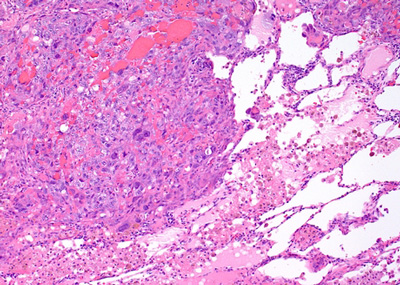CHMP adopts positive opinion of afatinib in SqCC
Posted: 29 February 2016 | | No comments yet
The CHMP positive opinion is based on the results of the head-to-head LUX-Lung 8 trial in patients with SqCC…


The Committee for Medicinal Products for Human Use (CHMP) of the European Medicines Agency (EMA) has issued a positive opinion for the approval of Boehringer Ingelheim’s Giotrif (afatinib) for the treatment of patients with advanced squamous cell carcinoma (SqCC) of the lung whose disease has progressed on or after treatment with platinum-based chemotherapy.


The therapy is already approved for the treatment of patients with EGFR mutated non-small cell lung cancer (NSCLC).
The CHMP positive opinion is based on the results of the head-to-head LUX-Lung 8 trial in patients with SqCC of the lung whose tumours progressed on or after first-line chemotherapy. Afatinib, compared to erlotinib, demonstrated significant delay in progression of lung cancer (PFS, progression-free survival, primary endpoint), reducing the risk of cancer progression by 19%. The therapy also showed a significant improvement in overall survival (OS), reducing the risk of death by 19%. In addition, the therapy demonstrated an improvement in quality of life and control of cancer symptoms.
Afatinib is a second-generation EGFR targeting agent
The rate of severe adverse events was similar between the two treatment arms with differences observed in the incidence of certain side effects: a higher incidence of severe diarrhoea and stomatitis (mouth sores) was observed with afatinib compared to erlotinib, while a higher incidence of severe rash/acne was reported with erlotinib compared to afatinib.
Commenting on the announcement, Dr Mehdi Shahidi, Medical Head, Solid Tumour Oncology, Boehringer Ingelheim said: “Despite recent advances in the treatment of squamous cell lung cancer, this disease remains challenging to treat. We are pleased to receive this positive opinion from the CHMP for afatinib; not only does it represent the potential availability of the first oral treatment option specifically approved for patients with squamous cell lung cancer, it also confirms the positive profile of afatinib, a second-generation EGFR targeting agent, when compared to a first-generation agent.”
Related organisations
Boehringer Ingelheim, Committee for Medicinal Products for Human Use (CHMP)



